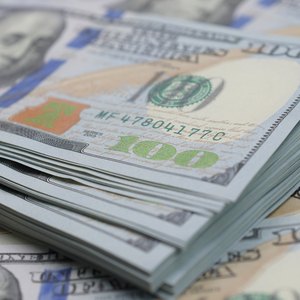
The 16th Amendment to the U.S. Constitution granted Congress the right to levy an income tax. The Internal Revenue Service was created as the federal agency with the responsibility for collecting income taxes and enforcing income tax laws. Most taxpayers are familiar with paying taxes on such common earned income as wages, salaries, commissions and tips, but according to the IRS there are some forms of taxable income, commonly referred to as miscellaneous income, that taxpayers may be less familiar with.
Types of Income
The Internal Revenue Service considers all income to be taxable income unless it is specifically exempted from taxation by the U.S. tax code. Income may be received in the form of money, but it may also be received in the form of property or services. Income may be earned, such as wages and salaries, or unearned, such as dividends and interest.
Awards, prizes, bonuses, gambling winnings, bartered exchanges, cash paid for work performed and proceeds from self-employment are all forms of reportable, taxable income. All income must be reported regardless of the amount – unless the income is explicitly exempted by the U.S. tax code.
Self-Employed Income
As of tax year 2020, self-employed individuals will file one or multiple 1099-NEC forms with their taxes. This form is used to report income for a non-employees.
An example would be if a company hired a contractor to do a service such as landscaping or painting for a building. Your company would then create a 1099-NEC for that contractor unless it is a C-Corp or S-Corp; in that case, a 1099-NEC won't be necessary.
There is a threshold for filing a 1099-NEC however. If the work performed cost less than $600, a 1099-NEC will not be necessary. Only jobs completed that were over that $600 mark would need a 1099-NEC. In this case you would file the form with the IRS and send a copy to the self-employed individual.
Read More: How to Keep Track of Self-Employed Income
Bartered Income Reporting
Bartering is one of the oldest forms of financial exchange, and is still in use today. Goods and services that are exchanged through barter are considered to be income by the IRS, even if no money changed hands. An auto mechanic who repairs an optometrist's car in exchange for an eye examination must report the value of the eye exam as income.
Likewise, the optometrist must report the value of the car repair as income. This bartered exchange of services represents income to both parties and is usually reported on Schedule C of IRS Form 1040. The value of the barter must be reported regardless of the amount, even if the amount is less than $600.
Considerations When Reporting
The IRS considers cash payments made for services rendered to be taxable income, regardless of the amount of the payment and regardless of the age of the individual who receives the payment. A teenager who mows lawns in his neighborhood on the weekend, and who receives a cash payment for that service has earned income which must be reported.
A girl who babysits for a friend of the family while they go out for the evening and who receives a cash payment for that service has earned income which must be reported. Cash payments are taxable income which must be reported regardless of the amount, even if the amount was less than $600.
References
Writer Bio
Mike Parker is a full-time writer, publisher and independent businessman. His background includes a career as an investments broker with such NYSE member firms as Edward Jones & Company, AG Edwards & Sons and Dean Witter. He helped launch DiscoverCard as one of the company's first merchant sales reps.

